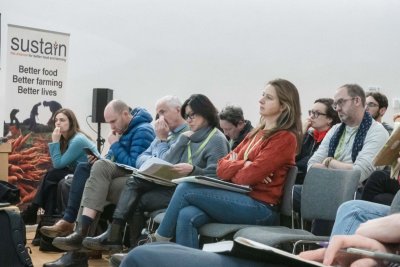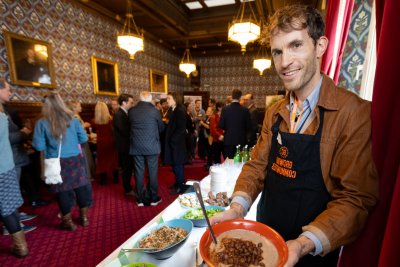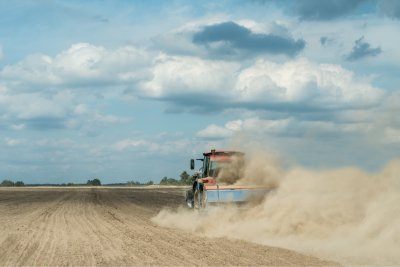The Greater London Authority has published a report on London's food related greenhouse gas emissions. It finds that food consumption in the capital accounts for 19 million tonnes of greenhouse gases per year - a very significant figure. 44% of these emissions are attributable to the agricultural stage.
The scale of the London food system's contribution to climate change can be understood by comparing the new findings to figures in the Mayor's Climate Change Action Plan for London, launched in 2008, which showed that:
- Carbon dioxide emissions from London's commercial and public sector are 15 million tonnes of CO2 annually (with a further 3 million tonnes from industry).
- Carbon dioxide emissions from London's domestic sector are 16.7 million tonnes CO2 annually.
- Carbon dioxide emissions from all London's transport (excluding aircraft) are 9.6 million tonnes CO2 annually.
The new report on London's food was commissioned separately by the Greater London Authority because greenhouse gas emissions from the food system comprise not just of CO2 (the main gas that was the focus of London's Climate Change Action Plan) but also methane and nitrous oxide - potent greenhouse gases associated with, for example, livestock production and fertiliser use in farming.
The new report is a call to action for London's consumers, caterers, businesses, hospitals, schools and restaurants to prioritise food that minimises greenhouse gas emissions and promotes health and sustainability. Climate-friendly food choices include:
- Less meat and dairy, and more food from plants. According to latest figures from the United Nations, animal farming globally causes more greenhouse gas emissions than all of the cars, lorries and planes in the world put together, and the impact is increasing.
- More local, seasonal and field-grown fruit and vegetables.
- Food, such as organic, grown without artificial chemicals - particularly artificial fertiliser, the main source of the potent greenhouse gas nitrous oxide.
Notes
- The GLA report can be downloaded here [700Kb rich text format file]
- The link to the report and story on the GLA website is at: http://www.london.gov.uk/mayor/publications/2009/docs/food-emissions.rtf
- Information about the links between food and climate change can be found on the Sustain website at: https://www.sustainweb.org/page.php?id=545
- For background information and regular updates on food and climate change research and scientific findings, join the Food Climate Research Network mailing list via: http://www.fcrn.org.uk/
Sustainable Farming Campaign: Pushing for the integration of sustainable farming into local, regional and national government policies.








